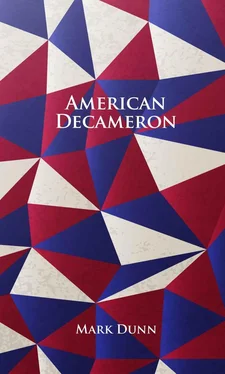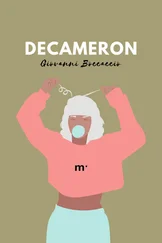But there was no Jim Crow here in Camp Marks. You find this hard to believe? Believe it: black men and white men — all veteran soldiers of the United States of America, eating and sleeping (making dodo, me and Odell calls it) and rising together at reveille and parading side by side and visiting the Sallies together at the Salvation Army hut (what a collection of little cuties they were, in their doughnut girl bonnets!) — puts a fellow in mind of being at liberty in France back in the day, except there was no Red Cross here in Anacostia. The Red Cross wanted nothing to do with the Bonus Expeditionary Force.
But white and black, it made no never mind, and that’s probably one of the reasons that the government thought we was all Communists. These caps would come into the camps and you could tell they was spies and snitches because of the way they’d give a closer eye to the Negroes and the Jews. But it wasn’t nothing like the Soviet brotherhood of man that put us all so warm and friendly with each other; it was just plain old-fashioned American brotherhood. You see, we had a lot in common. We’d all served under the American flag and now our country had turned its back on us — every one of us. And it was time to demand our due, all in one loud voice.
Me and my soap box. I would’ve voted for Roosevelt if I’d been able when the election come up later that year — wanted more than anything to see this country taken out of the hands of the damned plutocrat Republicans and Mellon-aires who got us into this fix. But I was back to riding the rails by then. Me and Odell. Wondering if we was ever going to see that bonus for service in the Great War that was promised to us in 1924 and then deferred for twenty-one more years out of pure political meanness.
Me and Odell was over on the north banquette of Pennsylvania Avenue when that Little Caesar sends in his Cossacks with the tanks and the guns and the gas masks, and we was watching the men scatter and listening to the frightened screams of the mothers and their boos. (You’d be surprised how many of us former doughboys brought our wives and babies along. Sometimes they just had no other place to go.) And I walk up to this one fuzz-faced soldier boy who’s fixing to put on his gas mask and do his dirty business with the tear gas, and I say, “ I used to wear one of dose, too, chief. Of course I was fighting the Huns, not my fellow Yanks.”
And the boy—’cause I grant you he was nothing more than a boy, no more than the age I was when I went off to fight the Kaiser — he gives me such a sad-ass look, and he says with hardly any volume to his voice at all: “I’m just doing what I’ve been ordered to do.”
“Uh huh,” I say. “And dat man over dere, the one on the ground—” says I, as me and Odell are looking over at Shorty, who came with us to see if there was any truth to the rumors about sending in the cavalry against us. Shorty’s on the ground from where one of the cavalrymen swung his saber and sent him tumbling. His banged-up face and arms were K&B purple. “Dat man dere was three times decorated.”
The soldier boy said he had to throw his tear gas grenade now and we’d best be moving on down Pennsylvania Avenue if we knew what was good for us, and then he put on his gas mask, and Odell and me, we shot off running.
All the way to Camp Marks.
Here was our crime: We came to Washington, D.C., to ask for help from our government. It wasn’t like what some of them politicians was saying — that we was asking for special treatment just because we’d been soldiers. But we came back from a war that had filled the pockets of our civilian brothers and was an especially good thing for their bosses on account of all the profiteering. And a hell of a lot of us veterans had a hard time finding work. The jobs we had when we went “Over There” weren’t waiting for us “Back Here.” And there wasn’t a lot of hiring going on elsewheres neither. Some of us eventually landed on our feet, but then the Depression hit and we lost our footing all over again. Millions of us. And the country was supposed to do right by us and compensate us for putting ourselves in the trenches in service to the American flag. But they reneged.
And we got mad.
Some folks gave a listen to us. Some fed us. And the chief of police looked the other way when we built the saddest junk-pile testaments to this damned Depression you ever saw, right within view of the Capitol building, of the White House, right there in the shadow of the Washington Monument. For true.
But there were them others who wanted us gone. As of yesterday.
That afternoon in Washington, D.C., one man lay dead and another dying. The city, it was turned mightily on its head. But General MacArthur was ready for whatever might come. And he was dressed to the military nines. I hear tell he sent one of his aides back to Fort Myer to fetch his polished riding boots. For true. The general was ready to vanquish his foes with all the horses and all the men and all the Goddamned firepower he could muster. Forgetting exactly who those foes actually were.
I was one. And Odell was another. And there was Shorty with all his medals, crawling on the ground like a thrice-kicked dog. All this came back to me when that son of a bitch MacArthur got his insubordinate ass whipped by Truman in ’51 and I remembered it again when I wrote the son of a bitch to tell him why he’d best not think of running for president the next year. That he wouldn’t get the veteran vote — at least not the World War I veteran vote, because there was a hell of a lot of us doughboys still around in ’52 and we had real good memories about how he turned the American army against its own during the bloody summer of ’32.
I also reminded him what me and Odell saw in the middle of that wide Pennsylvania esplanade while his troops was pushing us all farther and farther south.
He was sitting in his limousine and talking to the reporters and photographers.
“Point down to the troops, General,” the photographers said, trying to pose him.
And he grinned and obediently pointed.
“Now give us a salute, General.”
No grin. Just a face of utmost seriousness for the cameras. And the salute.
“Now get out and stand beside your horse.”
Someone fetched the general’s horse. Standing next to his mount, he soaked up every ounce of that limelight for the cameras. It was probably the best day he ever had, in my humble Cajun opinion, until 1944 when he sloshed through the water on his triumphant “return” to Leyte, with his speech all typed out nice and proper and ready to be delivered to the grateful Filipinos.
Odell used to ask me, years later, about my hatred of that corncob-pipe-smoking Napoleon, when the two of us were settled back down, him with his Vera and all those “chillren,” and me with my Peggy, who dared to take a chance on a forty-three-year-old confirmed bachelor with a little shrapnel still left in his ass and an itch to go off and fight in this new world war — an itch that was never going to get itself scratched. And I’d remind him that when the historians got out their pens, and the Hoovers (I’m also referring to that Commie-obsessed FBI squirrel) and Deputy Chief of Staff Moseley and Major Patton (Eisenhower, I think, was always embarrassed over the orders he had to follow on that sad day) got all their Communist-uprising bullshit knocked down by the truth of who it was who actually lived in those crowded mud-caked camps during those rainy weeks of June and July, 1932—when all was said and done and everybody knew the whole truth, folks would be reminded that it was Douglas MacArthur who deliberately disobeyed the president’s order not to send his avenging army across the 11th Street Drawbridge and upon the boggy fields of Anacostia that night. It was Douglas MacArthur who ignored a presidential order for the purpose of his own bastard glory. Sound a little familiar, don’t it?
Читать дальше












